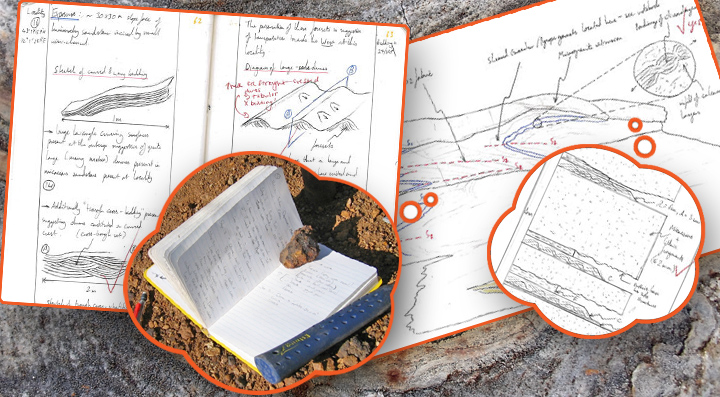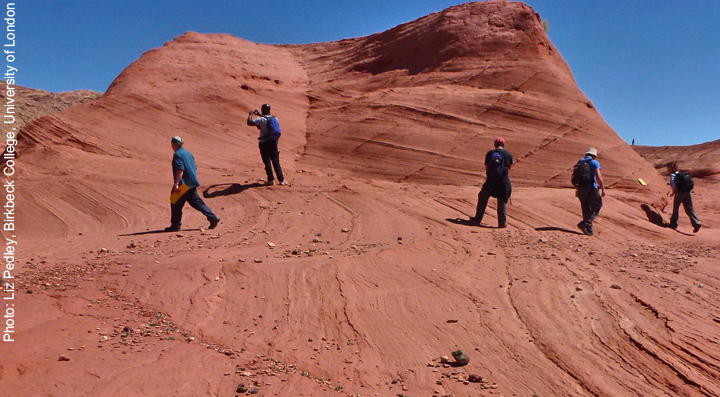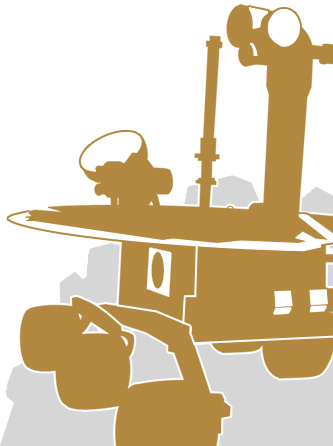Fieldwork
Field trips are a key aspect of undergraduate degrees. Fieldwork will normally be carried out once or twice per year during undergraduate degrees for anything from a single day to over two weeks at a time. Geology degrees typically require students to undertake more fieldwork than geophysics or environmental geology degrees. Usually this equates to a total of between two and three weeks in the field every year. Those on other geoscience courses are often able to participate in fieldwork but as an optional module.
What to expect

Fieldwork can be a very intensive learning experience, often involving a lot of work in a short period of time.
Content will vary, but can include:
- The production of a field notebook with notes (such as strikes and dips) observations, interpretations, field sketches and interpretative diagrams.
- A hand-drawn field map of an area.
- A digitised version of the field map on geographical information software or a drawing software package.
- Geological cross-sections (usually hand-drawn).
- A field report (produced afterwards) that uses your field photographs and summarises your interpretations. It will also usually integrate scientific literature about the field area.
The benefits of fieldwork

- They are an opportunity to get out of the lecture theatre and into hands-on work, often as early as the first or second term of your first year.
- The trips allow you to see the world as part of your degree. To see more varied geology many departments have trips abroad. Usually during undergraduate study these are in European locations such as south-eastern Spain, Iceland and parts of Italy or Germany. At post-graduate masters level many courses offer fieldwork on other continents. This is usually to observe active areas of industry such as large-scale mining or on-shore oil and gas fields, which are on a smaller scale in the United Kingdom.
- Most students, even in larger classes, get to know one another well on field courses. There is usually some group work and students help each other get through the workload. Many other courses at university never experience the same degree of social interaction.





